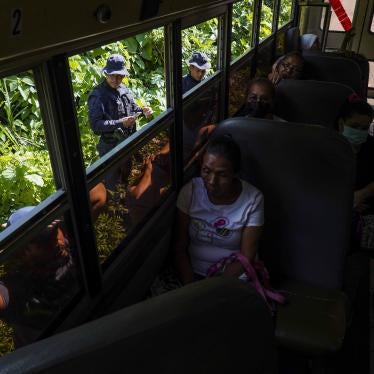On March 24, United States President Barack Obama finishes a two-day visit to Argentina. The visit coincides with the 40th anniversary of the Argentine military coup, which ushered in an era of brutal attacks on people perceived as dissidents, including executions, torture, and the abduction of detainees’ babies. Obama’s pledge to declassify military, intelligence, and law enforcement records related to Argentina’s “Dirty War” (1976-1983) is a critical contribution to the country’s efforts to bring those responsible for these serious abuses to justice.
The US State Department has already released more than 4,000 documents related to this dark period of Argentina’s recent history. They include transcripts of a discussion in which Secretary of State Henry Kissinger appeared to condone vicious attacks against victims, referring to them as terrorists. “If there are things that have to be done,” Kissinger said, according to one of the declassified transcripts, “you should do them quickly.”
The Argentine government had asked the US to reveal the rest of the classified intelligence and diplomatic records on the two countries’ relationship during that era. Obama announced that his government would declassify more documents.
Argentine authorities believe the new batch of documents might reveal details on the training of Argentine soldiers at what was then called the School of the Americas (now the Western Hemisphere Institute for Security Cooperation), at Fort Benning, Georgia, as well as on Plan Condor, a coordinated effort among the governments of Argentina, Bolivia, Brazil, Paraguay, and Uruguay to repress dissent through torture and assassinations. Argentinian authorities also hope the US documents will help in the search for the children of those who were disappeared during the dictatorship and in the continuing prosecution of human rights cases.
Many Latin American countries are still struggling to confront a legacy of human rights abuses by the military regimes of the 1970’s and 80’s. The Obama administration, in the past several years, has released documents related to authoritarian rule in Brazil and in Chile. The US government’s release of new material on the Dirty War in Argentina will build upon those transparency efforts, and contribute to truth and justice in Argentina, where human rights trials have continued to make progress, albeit subject to delays.







